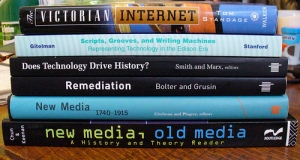During the weekend, I attended a PRSSA Regional Activity in Chicago. It was a great event with a lot of useful information, no matter your level in college. I also will disclose that I’m a bit of a conference junkie and hop any conference I can fit in my schedule. This was was particularly well planned and the programming was fantastic. I give my props to the planning committee from Valpraiso and DePaul.

I even got to stop by the office that I'll be working at over the summer. It's near the top of this monster. Cool!
I found the interviewing workshop to be the most useful for me. Below I’ve recapped some of the tips I got from the event:
- Prepare your toolbox. Have a strong handshake (not too strong), bring extra copies of your resume and cover letter, have your portfolio in hard copy and on CD (or online if possible), prepare your elevator pitch and have business cards.
- Research your prospective companies. In public relations, finding an internship can be extremely challenging, so many of my colleagues tend to apply for 10+ internships each summer. That’s fine, but it usually works out that you get the interview with the company you know the least about. Make sure you do your research and set up Google Alerts on each company to keep in the know about news and developments.
- The core elements to a successful interview are as follows: 40 percent attitude, 25 percent image, 25 percent communication and 10 percent job qualifications. Note: your job qualifications are the lest important. While this may not be true for every company, the take-away here is that if you get the interview, you can sell yourself on your attitude, image and communication skills. Basically, come in there with a smile, think beforehand about some questions that might come up and answer clearly.
- When answering questions, use the PARK model: problem, action, results, knowledge gained. In situational questions, keep this in mind. Also remember that it’s OK to admit you’ve made mistakes; if you have learned since and corrected the problem, that demonstrates maturity and skill.
- Utilize grouping answers in threes. When the interviewer asks about your strengths or weaknesses, give three each time. One isn’t enough and four or more just sounds too much.
- If you’re asked to start with “a little about yourself,” use this format: education background, what you’re passionate for and why you’re applying. Skip the “well, I’m…” and “uh.” This is one that you can easily prepare beforehand.
The last thing I learned was something that I think is timeless. I went to lunch with some friends that I see at PRSSA events and one of the things that came up was how knowing fellow students eventually turns into professional relationships. It’s hard to think that all of the people going to these conferences with you will soon be your colleagues, but it’s imperative to build your network with them, too. Don’t cut them off in line at the career fair and don’t ignore them.
Filed under: Professional Development, PRSSA, Public Relations, chicago, conference, depaul, interview, Professional Development, PRSSA, regional activity, valpraiso








Recent Comments